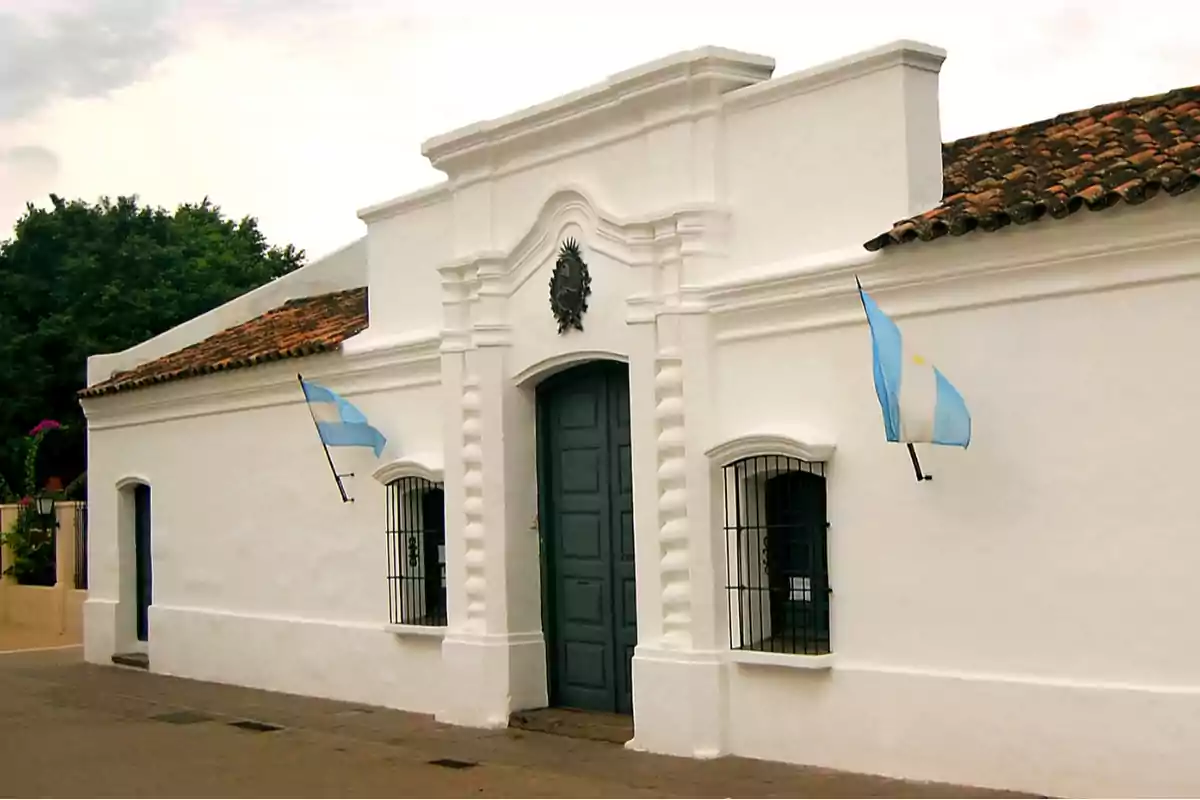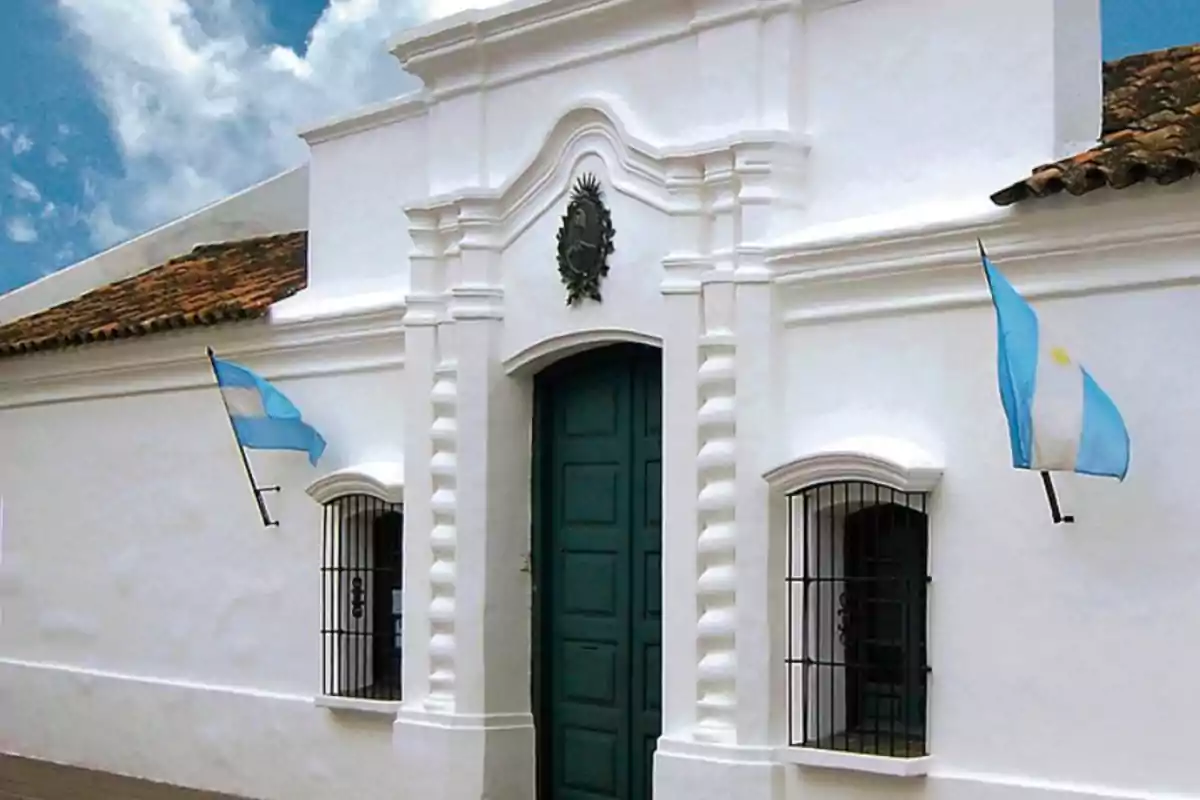
Independence Day: conflicts and tensions in the Congress of 1816
On July 9, 1816, independence was declared amid political tensions between warlords and congressional representatives
Today we celebrate a new anniversary of the Declaration of Argentine Independence, which took place in San Miguel de Tucumán on July 9, 1816, at a time when the Auxiliary Army of Peru, commonly known as the "Army of the North", had just returned to that city after the harsh defeat at Sipe-Sipe, in order to reorganize.
During this encampment in Tucumán, the future general from Córdoba, José María Paz, was able to witness the proceedings and deliberations of the Congress that declared Independence, and he has left us some accounts of the internal disputes that took place within the Congress. At that time, Paz was a young cavalry officer in the Army of the North. He personally knew some deputies, above all, those from Córdoba, since it was his native province.
General Paz was part of the veteran "Dragones del Perú", who were stationed at "the Convent of the Lules, belonging to the Dominican order, located three leagues southwest of the city." That is, being only 15 km (9.3 miles) from San Miguel de Tucumán, where he went almost daily, Paz was an eyewitness to these events.

He recounts that the Congress continued its sessions as usual in Tucumán, "having on July 9 (1816) declared independence from Spain and the Crown of Castile; but within it there was a seed of discord that was evident everywhere."
He comments that the deputies from Buenos Aires, followed by almost all the representatives from the other provinces, dominated the Congress and made the most significant decisions. However, there was a strong minority, led by the deputies from Córdoba, who tried "in vain to counter the supremacy and influence of the capital." Now then, what was the reason for this division?
"It was at that time that Artigas, the famous Artigas – explains Paz – waged a war to the death against the General Government, which, although it had vices and defects, represented the civilizing principles, while he relied on vandalism and barbarism." As we recall, Artigas was the first caudillo that the United Provinces had, and all the others who came later learned from him. Paz called him, disparagingly, the "proto-caudillo," as the "inventor" of all the others, embodying backwardness, savagery, and a lack of adherence to any rule, principle, constitution, or control by a legislature or congress.
Artigas had formed his own army of disorderly montoneras (a tactic later copied by Güemes, Ramírez, López, Bustos, Quiroga, Aldao, Ibarra, and even Rosas himself), and based on that force, he had practically established another State within the United Provinces, which he called: "League of Free Peoples," extending his influence to: the Banda Oriental (today: Uruguay, his homeland), Entre Ríos, Corrientes, Misiones, and Santa Fe. All these provinces, by express orders of that caudillo, did not send representatives to the Congress of Tucumán and disregarded everything decided there. Thus, our Independence was declared without the participation (unfortunately) of representatives from the littoral.
But Artigas was not content merely to disregard what was decided by the Congress of Tucumán (including the Declaration of Independence). As General Paz clearly stated, the eastern caudillo waged a "war to the death" against the United Provinces, sabotaging their communications, invading their territory when he could, waging war against their armies, intercepting the sending of reinforcements, money, supplies, or weaponry. All attempts to reconcile with him or to bring him to reflection were futile.

As Paz also said, the Central Government, represented by Supreme Director Pueyrredón and the Congress of Tucumán, may have had its vices and defects; however, it was the first effort by all Argentines to walk, united, the path of institutionality, civilization, Independence, and Organization. It was precisely due to the actions of these same caudillos, of whom Artigas was their guiding light, that the Argentine Republic delayed its constitutional organization by another 37 years, unlike Chile.
Now then, a special circumstance occurred in General Paz's native province: Córdoba. Although it is true that it was not formally part of the "League of Free Peoples", Artigas had significant influence in the inland province. That's why it did send its deputies to the Congress of Tucumán, but with instructions to clearly attempt to form an opposition bloc to Buenos Aires, from which Artigas himself wanted to strip the status of Capital, among other reprisals.
Although Córdoba was part of the United Provinces, its ruling class sympathized with Artigas. Its leaders were cultured and educated people. The presence of a University in the "docta" (the only one located on national soil), as well as other lower-ranking educational institutions, a Bishopric, and a significant commercial movement, gave it the right to aspire to rival Buenos Aires.
Hence Paz explains, referring to the leaders and deputies from Córdoba, that "nevertheless, there were men of good faith and even of merit who supported him – Artigas – because they believed him to be a useful instrument for the reforms they deemed necessary." Such reforms consisted of mitigating or curbing the excessive influence of Buenos Aires centralism, a legacy that had persisted since the days of the viceroyalty and which intensified after the May Revolution. That's why the people from Córdoba formed a strong opposition core to the deputies from the Capital.
However, Paz comments that "undoubtedly – these deputies and leaders – were mistaken, as they later realized and admitted. In this, as generally in all civil discord, it would be difficult to find justice exclusively on one side; usually, both exceed the limits set by fairness and public convenience." Indeed, since the deputies were his fellow provincials, Paz later had the opportunity to learn that they regretted having supported, during the Congress of Tucumán, a destabilizing caudillo who competed with the royalists in attacking the cause of Independence.
Moreover, it would not be surprising if these citizens regretted having trusted, in that circumstance, in Artigas; in view of what came afterward, and the anarchy that would later take hold of our country, at the hands of the caudillos formed in the shadow of the eastern leader.
However, in Tucumán, Paz explains, "the deputies from Córdoba were completely defeated, and... when the Congress, at the end of the same year, decided to move to Buenos Aires, they stayed in their province, separating from their destinies, except for Dr. Salguero de Cabrera," who continued his journey and went on fulfilling his role as deputy in the Capital.
Finally, Paz concludes that this attitude of the deputies from Córdoba, together with the fact that Córdoba was the first Argentine province where the counterrevolution, led by Liniers, prevailed, deepened in the other provinces "a kind of reproach for having believed, without just cause – Córdoba, as – opposed to the system of the revolution, which the others had embraced with such enthusiasm; this reproach was strengthened and increased by its futile opposition in Congress, and the defeat of its deputies."
However, it is appropriate to acknowledge (noblesse oblige), in the deputies from Córdoba, the same patriotism as that of all the other congressmen. When Argentine Independence was debated on July 9, 1816, no opposition was heard from them; instead, they joined, united with their other compatriots, representatives from the other provinces, to approve and acclaim, with one voice, the birth of our Nation.
More posts: